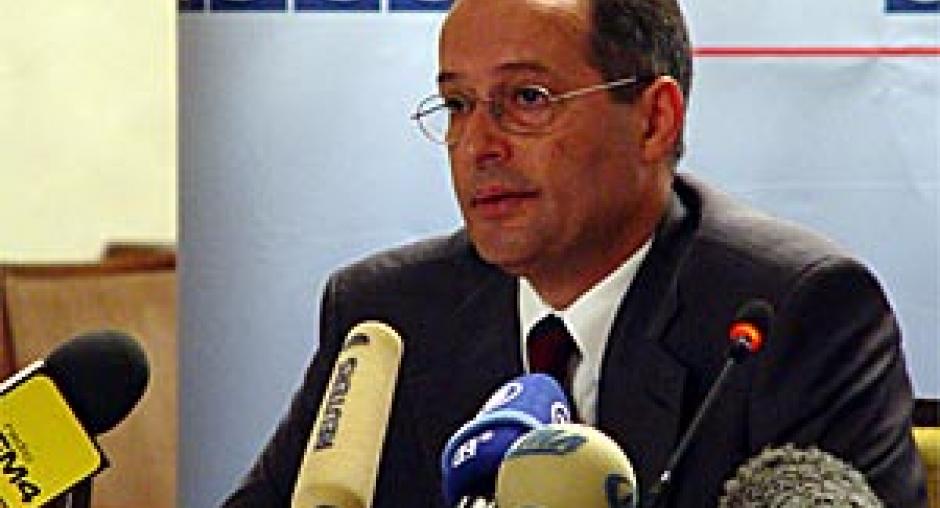Moldovan public broadcasting lacks alternative voices, says OSCE Media Freedom Representative

VIENNA, 22 October 2004 - "There is too much government and insufficient alternative opinion on Moldova's public broadcaster", the OSCE Representative on Freedom of the Media, Miklos Haraszti, said at the conclusion of a fact-finding visit to Moldova.
The transformation process of the national broadcasting institution, Teleradio-Moldova, into a public broadcaster has given rise to issues which were a major topic during his three-day trip. He met the company's administration and the chairman of its supervisory board, but also spoke with a group of journalists who oppose the way the process has been conducted.
In all these meetings the Representative stressed that the idea of public broadcasting remains at the heart of European democratic values. "There is a dramatic need to improve the quality of the broadcasting of Teleradio Moldova in this respect", Mr. Haraszti said.
Referring to his discussions with representatives of other broadcasting institutions and the Head of the Moldovan Audiovisual Co-ordination Council, Mr. Haraszti pointed out that the process of allocating broadcasting frequencies in Moldova was not transparent. "This lack of transparency might give way to favouritism", the Representative warned.
During meetings with journalists from both Moldova and the breakaway region of Transdniestria, as well as with representatives of non-governmental organizations working in the media field, the OSCE media watchdog got first-hand information on the difficulties the media faces in Moldova, especially with regard to libel and access to information.
"Moldova is part of the small group of forward-thinking countries which have decriminalized libel", Mr. Haraszti said., He pointed out, however, that the idea of decriminalization was to abolish fear among journalists. "This reform needs to go further," he stressed. "As long as journalists in Moldova are still threatened by disproportionately high damages when politicians sue them, the fear will continue to exist".
He also called on Parliamentary Speaker Eugenia Ostapciuc and the leaders of the Communist majority faction and the Commission for Mass Media not to go ahead with plans to force periodicals to re-register as non-profit organizations.
"The distinction between commercial and journalistic activities is difficult and such a move might negatively effect the economic base of a newspaper. Such a move might be perceived as politically motivated, especially in a pre-election period", he warned.
In his meetings with Foreign Minister Andrei Stratan and the Minister for Reintegration, Vasile Sova, Mr. Haraszti, also focused on the media situation in the Transdniestrian region and the need for access to pluralistic information for the population there. However, he had to cancel his plans to visit the region after Transdniestrian authorities signalled that they would block any attempt of the Representative to travel to the left bank.
